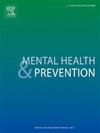Vaccination and mental health: Evidence from ASEAN countries
IF 2.4
Q2 Medicine
引用次数: 0
Abstract
Objectives
This study examines whether vaccination is associated with improved mental health during the COVID-19 pandemic in the Association of Southeast Asian Nations (ASEAN), addressing a critical gap in the literature.
Methods
This study utilizes data from the 2021 Gallup World Poll (GWP), including approximately 8,000 individuals across eight ASEAN countries, including Cambodia, Indonesia, Laos, Malaysia, Philippines, Singapore, Thailand, Vietnam. Mental health was assessed using the Negative Experience Index, which captures stress, anger, sadness, anxiety, and pain.
Results
We find that vaccination is significantly associated with improved mental health for the entire ASEAN region (β = -3.828, 95 % CI: [-6.085, -1.572]). After taking endogeneity into account, this association remains significant. We find that increased opportunities to make friends in the living area is a pathway through which vaccination can improve mental health. Notably, the association between vaccination and mental health is significant among both urban (β = -3.583, 95 % CI: [-5.674, -1.492]) and rural (β = -3.275, 95 % CI: [-6.142, -0.409]) populations, as well as among females (β = -5.918, 95 % CI: [-7.380, -4.457]), but it is not significant among males (β = -1.242, 95 % CI: [-4.107, 1.624]). Furthermore, at the country's level, the association between vaccination and mental health is significant in Cambodia, Laos, the Philippines, Singapore, and Thailand but not significant in Malaysia, Indonesia. and Vietnam. These findings are robust across various robustness checks.
Conclusion
These findings underscore the role of vaccination in improving mental health amidst health crises such as the COVID-19 pandemic in the ASEAN region. Implications for policymakers derived from our findings are discussed.
疫苗接种和心理健康:来自东盟国家的证据
本研究探讨了疫苗接种是否与东南亚国家联盟(ASEAN) COVID-19大流行期间心理健康状况的改善有关,解决了文献中的一个关键空白。本研究利用了2021年盖洛普世界民意调查(GWP)的数据,调查对象包括柬埔寨、印度尼西亚、老挝、马来西亚、菲律宾、新加坡、泰国和越南等八个东盟国家的约8000人。心理健康是用负面体验指数来评估的,该指数包括压力、愤怒、悲伤、焦虑和痛苦。结果我们发现,在整个东盟地区,接种疫苗与改善心理健康显著相关(β = -3.828, 95% CI:[-6.085, -1.572])。考虑到内生性后,这种关联仍然很重要。我们发现,在生活区结交朋友的机会增加,是接种疫苗改善心理健康的途径。值得注意的是,在城市人群(β = -3.583, 95% CI:[-5.674, -1.492])和农村人群(β = -3.275, 95% CI:[-6.142, -0.409])以及女性人群(β = -5.918, 95% CI:[-7.380, -4.457])中,接种疫苗与心理健康之间的关联是显著的,但在男性人群中不显著(β = -1.242, 95% CI:[-4.107, 1.624])。此外,在国家层面,疫苗接种与精神健康之间的关联在柬埔寨、老挝、菲律宾、新加坡和泰国显著,但在马来西亚和印度尼西亚不显著。和越南。这些发现在各种稳健性检查中是稳健性的。这些发现强调了疫苗接种在改善东盟地区COVID-19大流行等卫生危机中心理健康方面的作用。讨论了我们的研究结果对政策制定者的影响。
本文章由计算机程序翻译,如有差异,请以英文原文为准。
求助全文
约1分钟内获得全文
求助全文
来源期刊

Mental Health and Prevention
Medicine-Psychiatry and Mental Health
CiteScore
2.10
自引率
0.00%
发文量
22
审稿时长
24 days
 求助内容:
求助内容: 应助结果提醒方式:
应助结果提醒方式:


